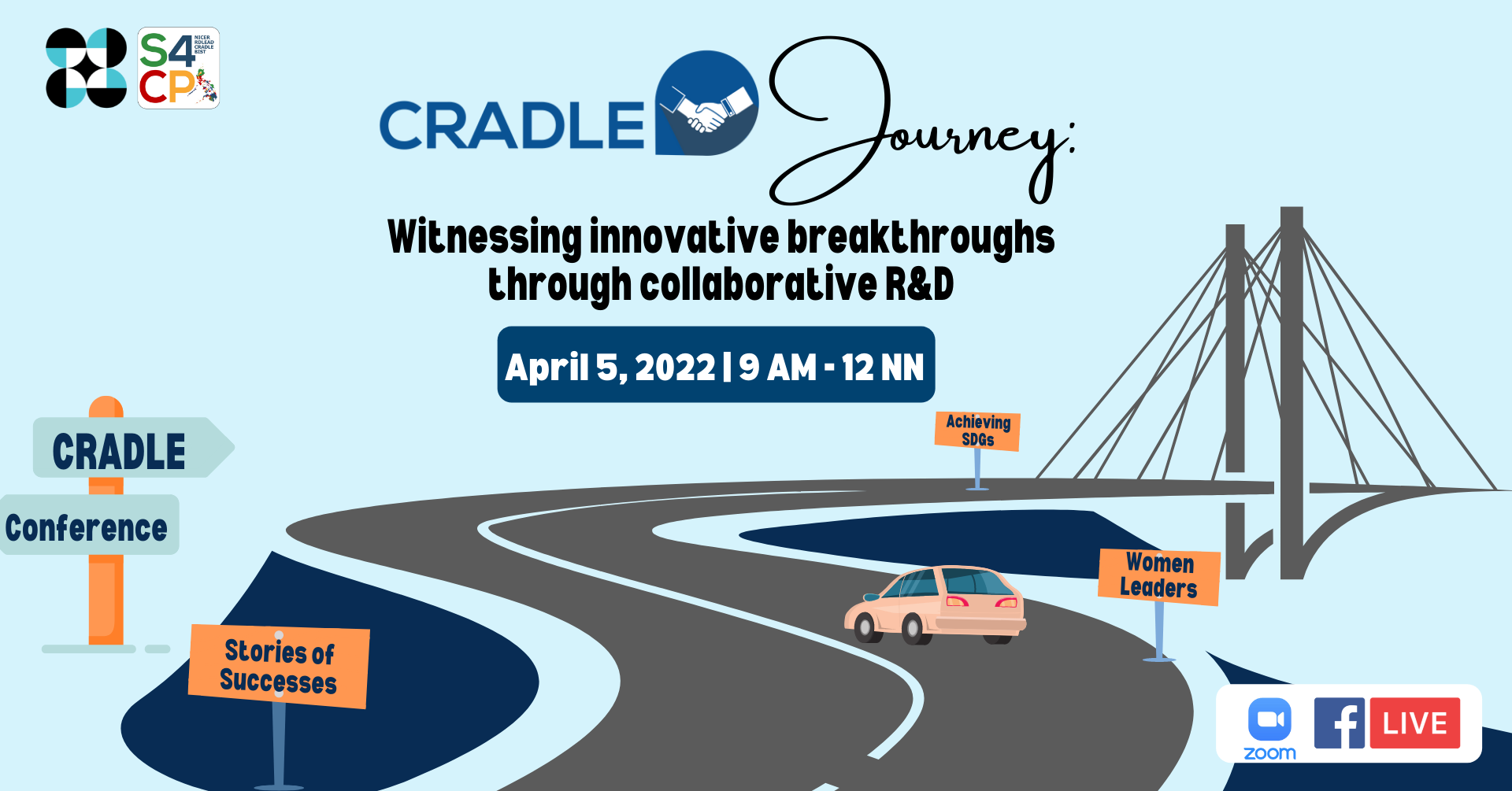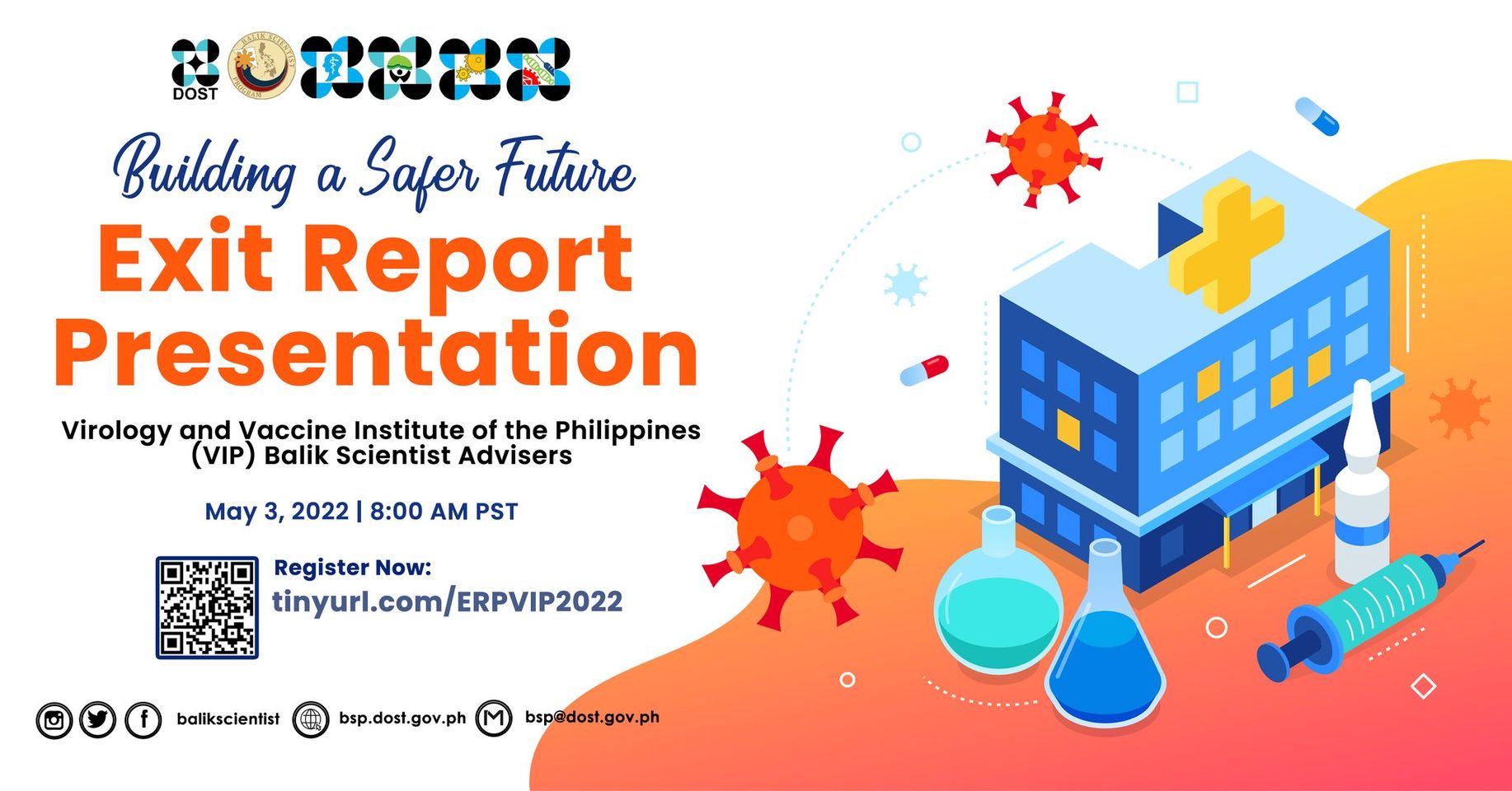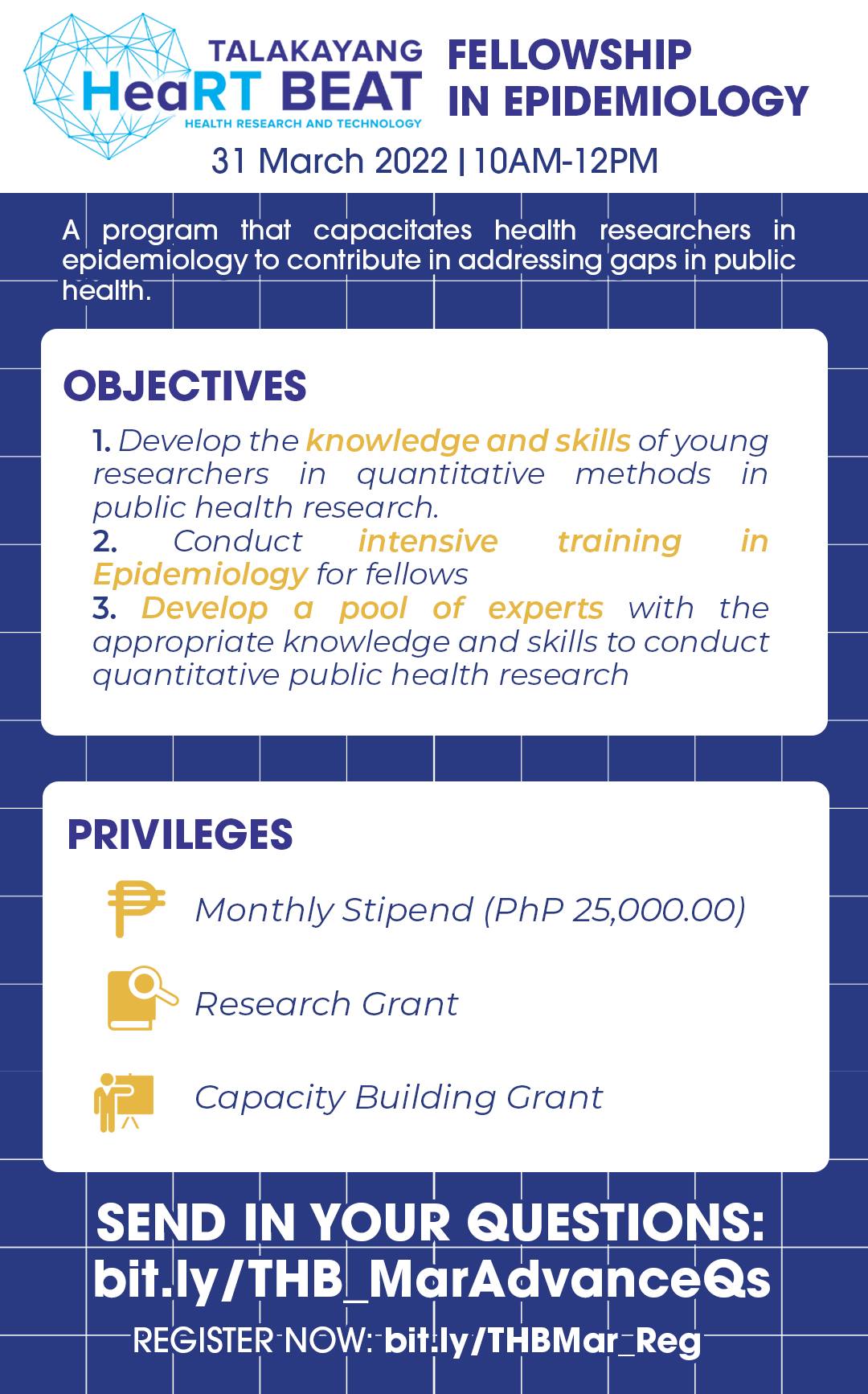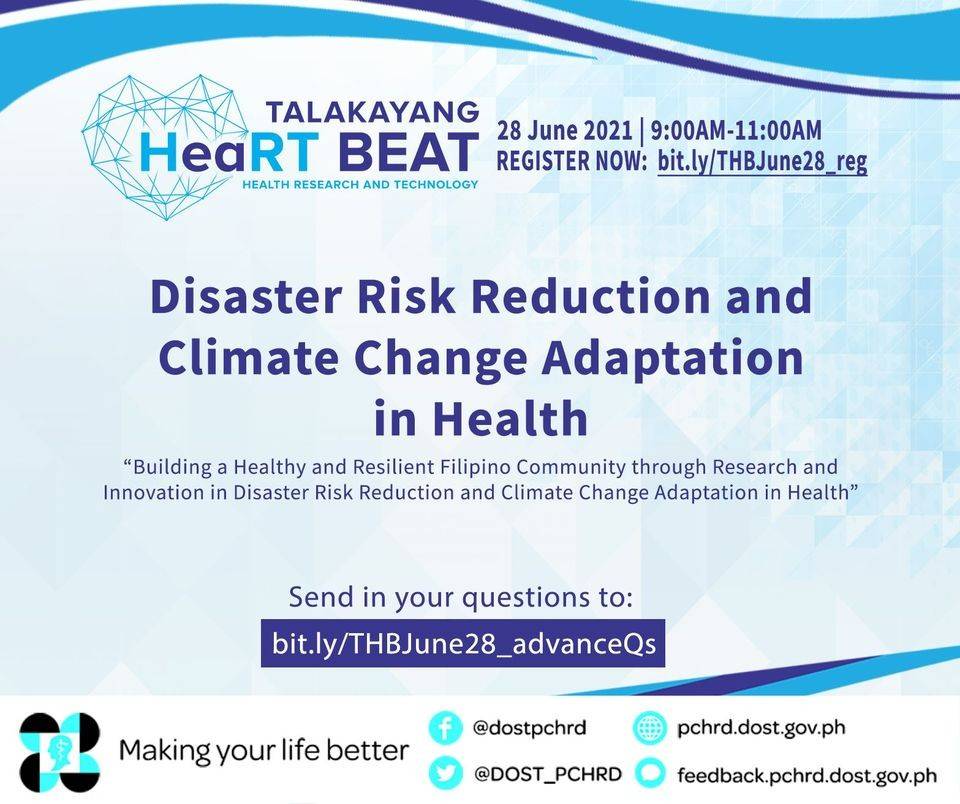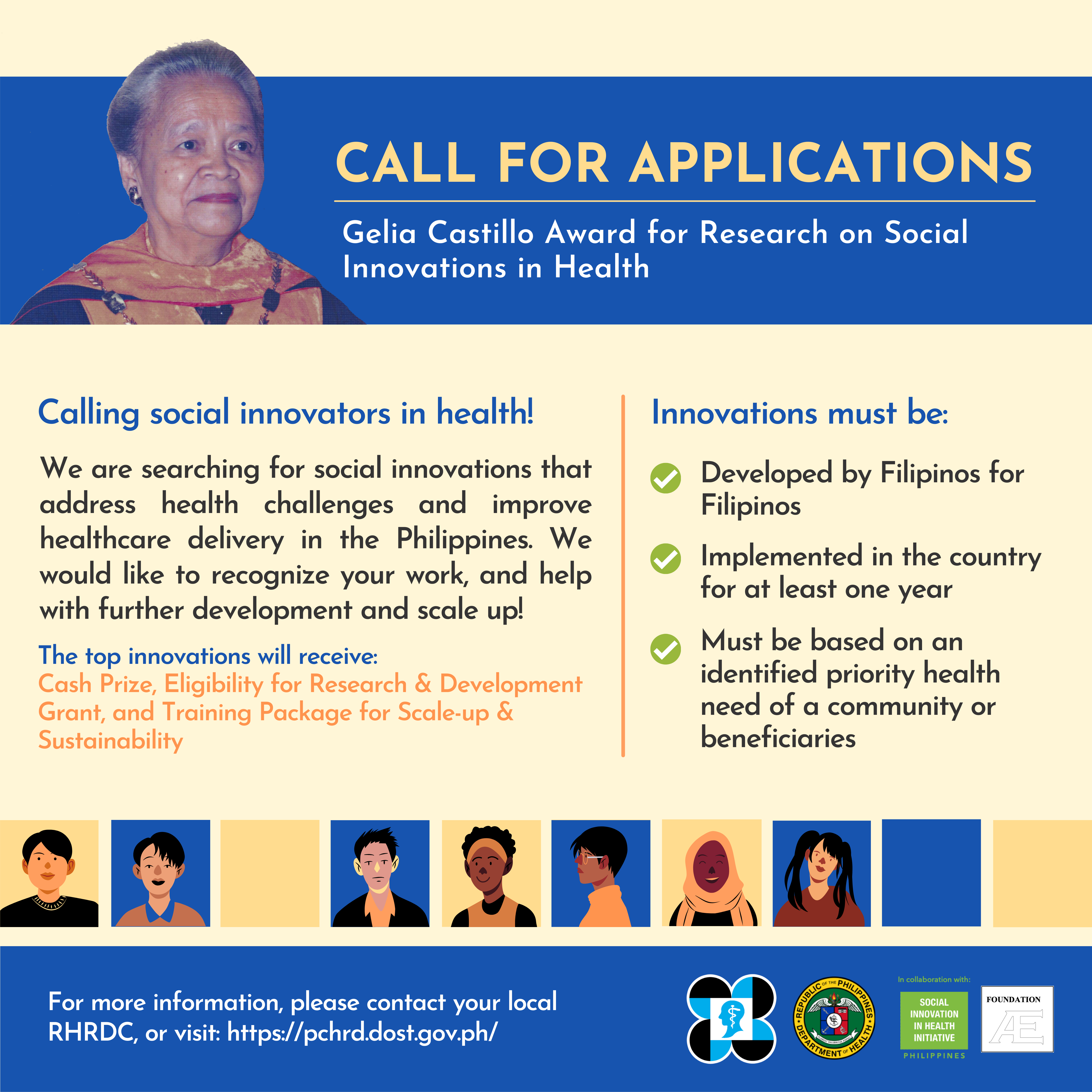
The call for submissions for the Gelia Castillo Award for Research on Social Innovations in Health (GCARSIH) 2022 is now open.
The Gelia Castillo Award for Research on Social Innovations in Health (GCARSIH) aims to recognize the outstanding social innovations that address persistent, societal and health systems challenges. Through the innovators’ experience, we can better understand why and how social innovations create impact, and discover the keys to scale up or integrate these effective interventions into the larger health system.
This Award is open to ongoing social innovations in health developed by Filipinos for the Filipinos. The entry must be implemented in the Philippines.
For the purposes of this Award, social innovations in health (SIH) are defined as new solutions (product, services, models, market mechanisms, processes) created by multi-sectoral health system actors. The solutions must address a health need more effectively than existing approaches and have the ability to enhance people’s capacity to act and take ownership of their own health. Social innovations have health-system changing potential as it changes and strengthens relationships between people and results in a more effective use of available resources.
Who can submit an entry?
The Award is open to all individuals, groups and institutions that have successfully developed and implemented social innovations in health in the Philippines. Participating institutions may be:
- public or private
- members of the consortium
- scientific, technological and professional societies or associations
- research institutes
- universities and colleges
- others
How to submit an entry
Step 1. Complete the Submission Entry Form (attached below), which includes a comprehensive write-up of the health innovation, a description of future plans for sustainability or scale-up, and relevant supporting documents.
Step 2. Submit your entry in person, via courier or via email on or before June 17, 2022
- Email: Send to This email address is being protected from spambots. You need JavaScript enabled to view it. with the subject GCARSIH SUBMISSION / <Name of Innovation> / <Name of Region>
- In-person or courier: Please refer to the Submission Entry Form for the list of RHRDC addresses.
Criteria
- Eligibility. The submitted social innovations in health will be considered for shortlisting based on the following eligibility criteria:
- Developed by Filipino/s.
- Implemented in the Philippines for at least one (1) year
- Based on an identified priority health need of a community or geographical context.
- Complete submission entry form (that has enough information for a fair review) submitted within the set deadline.
2. Technical Screening. Submitted entries shall be screed based on the following criteria:
- A programme, process, product, practice or a market mechanism with a high degree of innovativeness (i.e. new and different in its context)
- Demonstrated an inclusive process (engagement of community or stakeholders)
- Demonstrated positive health and social outcomes
- Not a purely medical or scientific innovation
3. Selection. Entries that pass eligibility and technical screening will be scored by an external independent panel of experts based on the following selection criteria:
- Degree of Innovativeness (25%) – The innovation provides a novel approach to address a systemic health challenge within its local context, providing an alternative to the status quo.
- Significance (15%) – The innovation addresses a health priority of the Philippines (as defined by the National and/or Regional Unified Health Research Agenda), or a priority in a more localized level such as prevalent yet neglected health problem in a town or a marginalized group/ethnic group
- Participatory & Co-owned (15%) – Participatory approach is evident in the development, implementation, and evaluation of the innovation (i.e. contributions from various stakeholders: the patients/families, local health personnel, local leaders, other sectors).
- Potential for Further Research or Scale (15%) – There are clear plans for further research and development of the innovation. The innovation shows feasibility to be applied, replicated and scaled-up to other communities with similar problems, or integrated into the broader health system.
- Inclusiveness (10%) – The innovation has the potential to be used by a large number of people, enhancing equity and access.
- Effectiveness (10%) – The innovation has a demonstrated positive outcome on the health challenge it is addressing.
- Affordability (10%) – The innovation is affordable to the poor who are otherwise excluded in the local context or the solution is more cost-effective than the status quo.
Shortlisting and Final Selection
The RHRDC will conduct the initial review and shortlisting of applications based on the eligibility criteria, and endorse the shortlisted entries to the GCARSIH Secretariat. Eligible entries will then be screened based on how the social fits the criteria of social innovation provided above.
The Final Selection will be conducted by an independent panel of experts convened by the GCARSIH Secretariat. The innovations will be scored on a scale of 1-5 in 0.5 increments. The panel may conduct on-site or online validation calls (e.g. telephone or video conference). Only the top 10 finalists for the award will be notified.
The panel has the prerogative not to give the award if the innovations fail to reach the threshold score. The decision of the panel is final.
Prizes and Incentives
The top innovations in health will receive:
The top innovations in health will receive:
- cash prize (300,000php for 1st place, 200,000php for 2nd place, 100,000php for 3rd place)
- eligibility for funding for a research and development project**
- training and mentoring package
Download: GCARSIH 2022 Submission Form and Guidelines
Important Dates
Deadline of submission of entries: June 17, 2022
Frequently Asked Questions
- Can we submit on behalf of our partner organizations / partner communities?
Yes, any partner organization involved in the development and implementation of the social innovation in health may submit the entry. The National GCARSIH Secretariat assumes all partners are informed of the submission for consideration for this award. The National GCARSIH Secretariat reserves the right to disqualify entries that have not properly attributed the social innovation described in the entry to the proper organizations/groups/individuals.
2. Can social innovations with foreign partners submit for GCARSIH?
Yes, social innovations in health that have foreign partners or collaborators may be submitted for this Award, so long as there are local organizations/groups/individuals who are co-designer(s) and co-implementor(s) of the innovation.
**The eligibility for funding for a research and development project will require the organization to be accredited by DOST to release the funding. If the organization is not accredited, you may partner with an accredited institution for the research project
| DATE POSTED | POSTED BY | FILESIZE |
|---|---|---|
| April 5, 2022 | PCHRD | 0 B |

